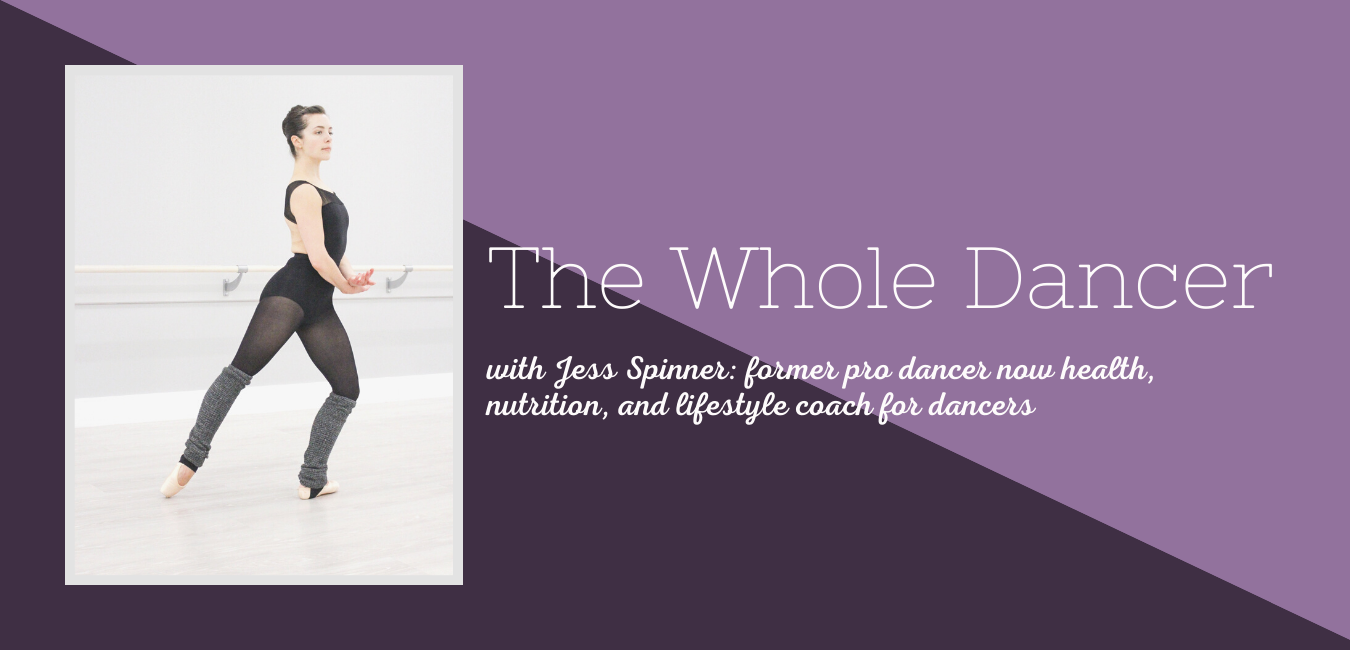This letter is to parents of dancers who hope to dance professionally. Interesting things happen when you as a parent start to feel the pressure of the dance world on your child.
You might hope that they change their minds and choose a different path because it might be easier. It’s possible you worry about their body not fitting the mold and question their potential for “success.” You might take it upon yourself to start giving them food and body feedback as a way to “help.”
It’s true not all dancers who hope to dance professionally will achieve that goal. However, it’s my guess that you as an adult can look back and see many instances where you went for something that didn’t turn out the way you had hoped.
Going for something and not achieving it and then getting back up and finding a new path is how resilience is built. You learn how to recover from the difficulties in life. Part of what makes it so hard to accept the possibility your child won’t make it is that they’re going to go through it at a young age.
This letter will hopefully give you some things to reflect on as you support your dancer on their journey.
Where this letter stems from…
I’m sharing these thoughts as someone with a small child. My daughter is just 3 so I realize perhaps my mind may change as she gets older in terms of how to best support her towards her goals. However, my primary focus will always be her health and well-being.
I also work with dancers of all ages and my current clients span from 14–26, and I’m in touch with many of their parents as well. This letter is informed by the conversations I have with dancers and their parents.

Your child is already getting rejected enough.
Dancers start to face rejection in their teens and even tweens. Most don’t get into every summer intensive they audition for, but that doesn’t mean they should stop moving forward in dance. You can help your child process that rejection, but you don’t have to look for ways to justify it.
You don’t have to tell them it was because of their bodies or that they have to change themselves to start getting in. Support them to improve as dancers. Give them the support they need to work smarter and show up more fully in their dance classes. Empower them to get a side job to pay for private coaching.
Don’t be an additional naysayer who just encourages them to go an easier path. You don’t have to warn them that they’ll get rejected because you don’t know that for a fact. They are also, most likely, already worrying about this. And honestly, neither you nor their teachers can predict with certainty who will make it and who won’t.
Dancers each improve at a very different pace.
As someone who studied dance in college because I needed more training, you might think that getting it together in college was my shot. Like, OK, you’ve got 4 years to figure out how to be successful in the professional dance world. However, for me, my greatest improvement as a dancer came in the year following college when I was in a company.
Maybe it was the environment, the teachers, or the energy in the room — I’m not exactly sure. But I showed up differently and improved so much that I was asked to stay. Then, I went on to a freelance career where I felt valued as a dancer. Improvement doesn’t have to stop at a certain age.
Within this topic, I’ll also share about the trainee and second company structure that’s (almost) everywhere now. The majority of dancers are going to start their careers in an unpaid (or even tuition-based) situation. This isn’t great, but in trainee programs and second companies, you do see greater body diversity.
Part of this comes from the fact that at least some trainee program directors recognize that even in their late teens and early 20s some dancers are still in the process of figuring out performance nutrition. And the rigor of a professional schedule, coupled with a balanced approach to food, will support them in achieving their best body goals and growing into a successful professional.
All that is to say your dancer doesn’t have to look a certain way the minute they turn 18 and go out for company auditions.
Your experience as an athlete isn’t the same as your athletic artist’s experience.
A lot of dance parents have no dance background but were serious athletes. I’m sorry, but it’s not the same. The aesthetic pressure of dance coupled with the daily observation of one’s body in a mirror creates the potential for a much higher level of stress surrounding food and their body.
The answer is not as simple as they just have to fuel themselves like athletes. First and foremost, dancers have to find an easy, free approach to their food choices. They have to feel grateful and proud of their bodies and what they do for them in order to achieve their full potential.
You have to understand that the hyper-critical nature of dance means that your dancer is already likely to be incredibly judgmental of their shape. From the time they started dancing, they’ve been taught to look for what they’re doing wrong so they can correct it.
And in ballet, there are so many elements that go into doing something correctly, and it’s a lifelong pursuit. I don’t want to oversimplify or belittle other athletes, but if you’re a runner, for example, and your goal is to run at a faster pace, you train to run faster gradually over time. Surely there are strategies for this and I know there are a variety of running techniques and belief systems, but the goal is clear and perseverance should help you get there. In dance, improvement and achievement is much more complex.
Your financial investment in their future.
Sometimes parents feel so invested because they’ve invested lots of money in this goal for your child. That’s a choice you’ve made, and it’s something you can rethink if you want to. If the investment is making you bitter or you feel too invested, it might be time to look for another way to balance this. I’ve worked with dancers whose parents were not willing to support dancing as a goal at all.
Those dancers got jobs in order to pay for their own training. Is that an easy path for them? No, but it’s surely another way they’re building resilience and owning that this is their goal and therefore their responsibility to support and achieve. When the responsibility is put on the dancer, they become even more invested in making it work. The dancers I’ve worked with in that position have all made it to the paid, professional level in dance companies.
Giving your child food feedback or making body comments.
I draw a hard line on this one. Don’t comment. Don’t teach them how to diet or about calories in, calories out (which is oversimplified, misguided, and dangerous). I guarantee if your dancer has gained weight, they are completely aware of it.
So what can you do? Model a balanced approach to food, which honestly, you may struggle with yourself. Whenever dancers tell me their parents have given them extreme food rules (don’t eat after 8 p.m., don’t have more than one snack a day, sugar should be avoided completely), it usually comes back to the parents being misinformed or personally struggling with food and body image.
You may need an outside support to guide your dancer to a balanced place. Reach out to me or someone with a similar background who understands the pressure and also knows how to steer them towards a balanced, healthy approach that will support their highest potential in dance.
How to support your dancer.
Provide them with the skills to work through challenges and empower them to seek support when they need it. Remember that none of us can know the outcome of their dance journey. Allow them to walk their own path and learn from it.
I recognize that most parents just want their kids to succeed, achieve their goals, and be happy. However, I believe that your path is found through the hard times, the failures, and working through the challenges. Let them go for the big goals. Let them know it’s ok to fall short. Happiness is not in fact attained by reaching all of your goals. You find happiness by getting to know disappointment and pivoting towards what’s meant to be.
You as a parent can be a healthy and loving support system when the journey gets hard, or when things don’t work out. You can be a part of their success story, or you can be a part of why they never “went for it.”
A new service I’m offering is coaching for dance parents. This is for you if…
- You have questions about the realities of the dance world.
- You’re unsure of how to best support your child in dance.
- You want more information on the food and body pressure they’re facing.
- You’re worried about how the dance world pressure is impacting your child.
- You want to be a supportive guide without instilling fear.
You can click here to sign up, or email me (jess@thewholedancer.com) for more information.
